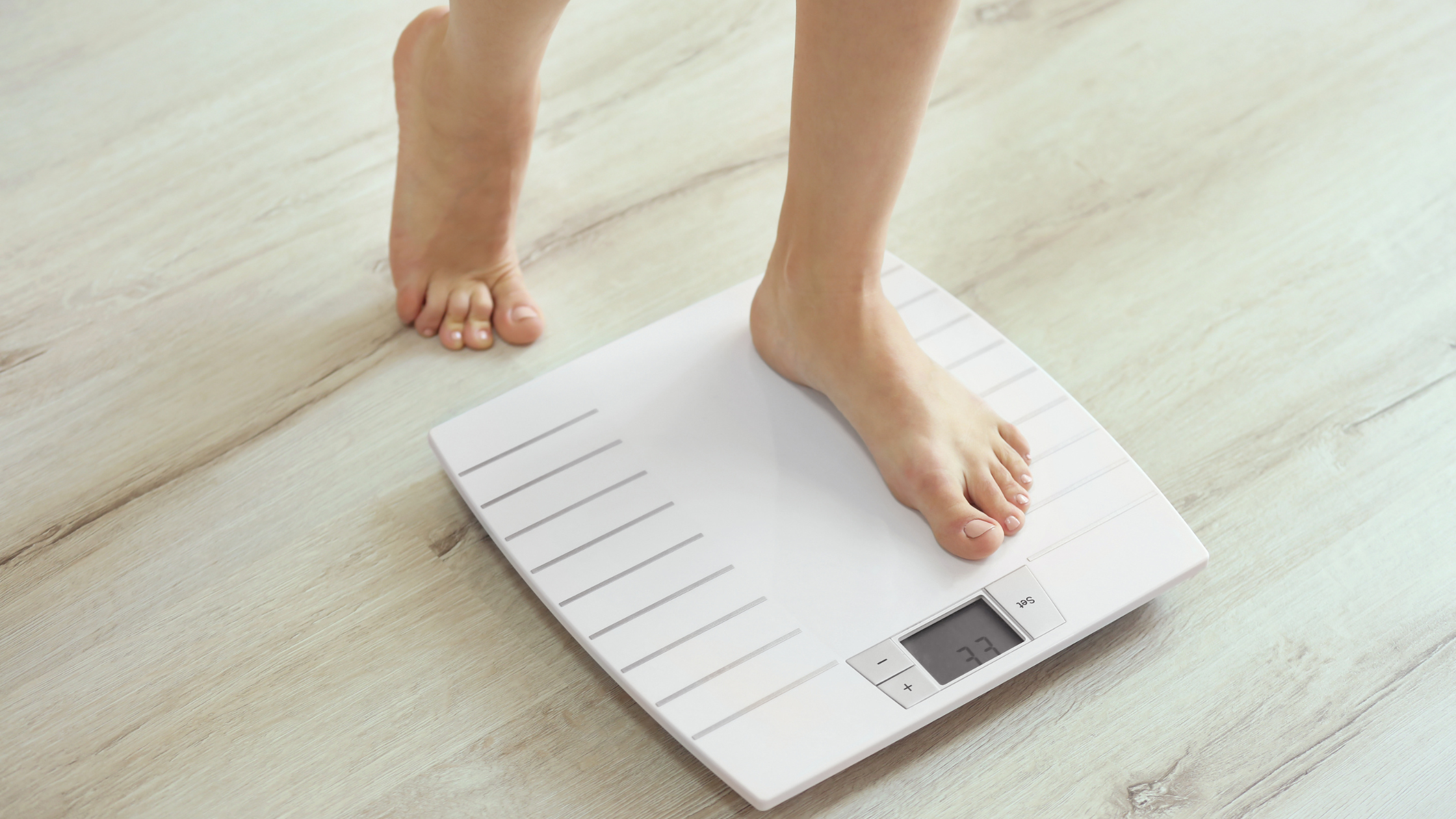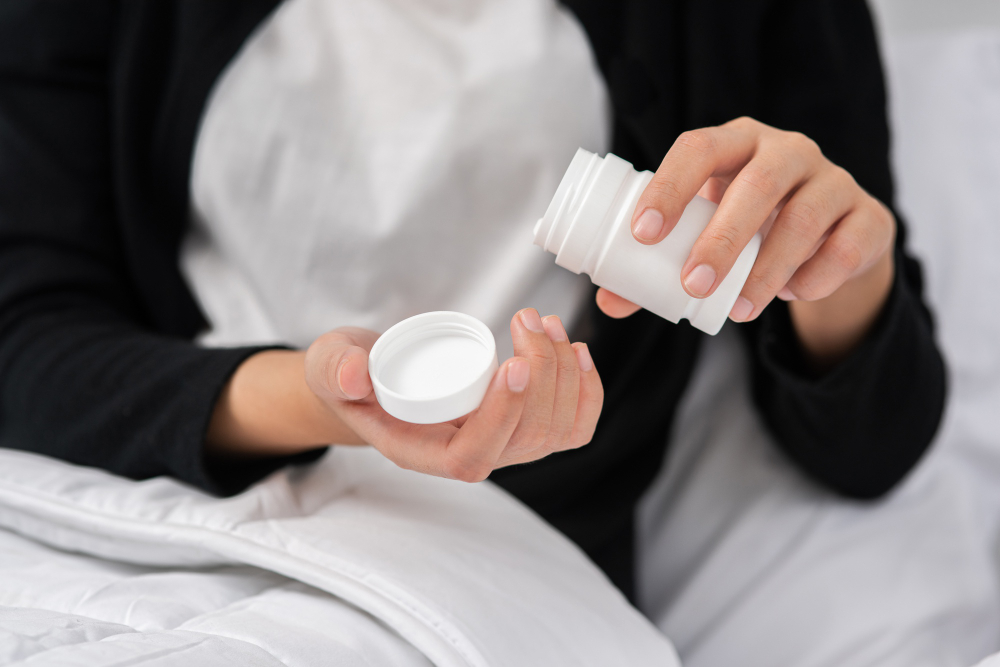Risk Factors of High Estrogen: How to Treat Hormone Imbalance
- , Hormones


Caroline Hedges
Caroline Hedges is a critically acclaimed researcher, writer and serial entrepreneur.
With a knack for making the obscure plain, she is able to distill her research
in writing both fun and engaging posts.

Our bodies create hormones for sexual development. For example, estrogen is a hormone found in the female body that helps develop and sustain the reproductive system, stimulate breast tissue growth, and promote bone health. It may come as a surprise, but the male body produces estrogen, as well! So, what happens when we experience a hormonal imbalance?
What Causes High Estrogen Levels?
What causes high estrogen levels? Your estrogen levels can increase naturally, but never to the point of damaging your body. Instead, high estrogen levels may occur because of medication. This is a common problem met in women going through menopause. Because almost every menopause treatment contains estrogen, the levels can rise quickly and over the healthy amount.
Stress, eating disorders, and different illnesses can throw off your estrogen levels, as well, either by raising or decreasing them. If the estrogen levels are significantly higher than the progesterone levels, you may experience estrogen dominance. Progesterone is a hormone found mainly in the ovaries that plays an essential towel in maintaining your menstrual cycle.
Estrogen Dominance Symptoms
Any hormonal imbalance in your body will show itself through different symptoms. For example, the most common symptoms of high estrogen are:
- Weight gain;
- Decreased sex appeal;
- Lumps in your breasts;
- Hair loss;
- Cold feet and hands;
- Swelling and soreness in your breasts;
- Irregular menstrual cycles;
- Intensified symptoms of premenstrual syndrome.
Other symptoms include bloating, mood swings, headaches, increased anxiety, irregular sleep schedule, fatigue, and dizziness. You have to look out for these symptoms, but be wary, as they can easily throw you off into thinking that you are experiencing something else. Therefore, you have to look out for the symptoms affecting your female characteristics and, especially, your menstrual cycle.
Can Too Much Estrogen Cause Weight Gain?
Weight is directly related to and managed by hormones. To maintain a healthy weight, you have to keep your hormones under control. If you have high estrogen levels in the body, the hormone can’t manage your weight anymore. And so, the little food you’ll eat will be put on as weight instead of energy for your body. This process will result in weight gain and an irregular sleep schedule. Many overweight women have high estrogen levels in their bodies.
High Estrogen levels and Oily Skin
Hormones are the primary influence on your skin, which is why, when you go through puberty (i.e., becoming sexually mature), you may experience acne and other skin problems. When going through puberty, your sebaceous glands (i.e., glands that produce small amounts of oil ) increase in size. The sebaceous glands produce sebum influenced by estrogen, especially during the menstrual cycle. Studies show that women experience an increase in sebum production a week before and during the cycle.
High Estrogen and Hot Flashes
Women with hormonal imbalances experience hot flashes, as estrogen dominance has a direct correlation with hot flashes and night sweats. This symptom appears when the progesterone levels are low, so by balancing the levels of hormones, you will escape this symptom.
How Does Estrogen Affect Mood?
Mood swings are a common symptom of estrogen dominance. Estrogen is known to help the production of serotonin, a chemical that regulates and stabilizes mood. If hormone levels are imbalanced, so is the production of serotonin. You may experience mood disorders such as anxiety, depression, irritability, insomnia, and other harmful symptoms due to decreased serotonin levels.
High Estrogen and Sore Breasts
Estrogen dominance damages breast tissue and affects breast tissue growth, thus the soreness women experience through menopause. Estrogen dominance can appear while taking menopause medication as it contains high hormone levels. This is very common with hormone imbalances, but you can still contact your doctor for treatment.
Can High Estrogen Cause Acne?
Because estrogen influences your skin, acne can appear. Estrogen levels are usually high through the menstrual cycle, which is the time when most women will likely experience acne breakouts. It is known that estrogen is predominant in the women’s body through the first half of the menstrual cycle. And so, this imbalance can lead to acne.
Can High Estrogen Cause Anxiety?
As we mentioned earlier, estrogen directly helps the production of serotonin in the body. So if we are to experience an increase in estrogen levels, serotonin production will suffer. Serotonin is known to be the main mood stabilizer chemical. Therefore, it is possible to develop anxiety when fighting estrogen dominance. Many women have anxiety and panic attacks through the menstrual cycle because of the high estrogen levels.
Does Excess Estrogen Cause Hair Loss?
We saw how much influence the estrogen hormone has over your growth, and hair is no exception. If you notice that your hair has become thinner, immediately contact your doctor. If you leave your hormonal imbalance untreated, it can lead to hair loss.
Does Excess Estrogen Cause Headaches?
When experiencing estrogen dominance, your bodily functions become impaired. Headaches are a common symptom of high estrogen levels in the body. Although not as dangerous as the other symptoms, headaches can still get the best of you and ruin your day.
Can High Estrogen Cause High Blood Pressure?
High estrogen levels can build up in an area of the brain known to regulate blood pressure, resulting in a build-up of superoxide that can cause high blood pressure. If you experience this symptom, consult your doctor immediately.
How to Treat Hormonal Imbalance
There are ways in which you can treat hormonal imbalances. First, you have to take a test and get a diagnosis to know what causes the hormonal imbalance and what treatment to go for. Some of the hormonal imbalance treatments include:
- Estrogen therapy;
- Vaginal estrogen;
- Surgery;
- Birth control;
- Testosterone therapy.
Talk to MedHealth 360 about Your Personalized Hormone Replacement Treatment!
If you think you need hormonal therapy, MedHealth 360 will provide you with the most qualified and best-trained team of experts. We provide a broad range of hormonal treatments, such as bioidentical progesterone replacement therapy. The team led by Dr. Phillip Chang will help you achieve your goals.
If you want to inform yourself, the MedHealth 360 blog will provide everything you want to know. We are always here to help you, so don’t hesitate to contact us!




